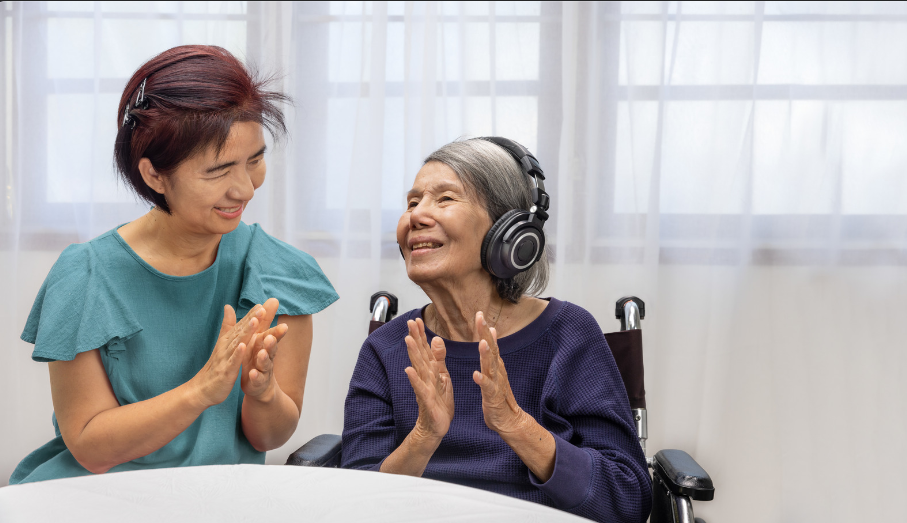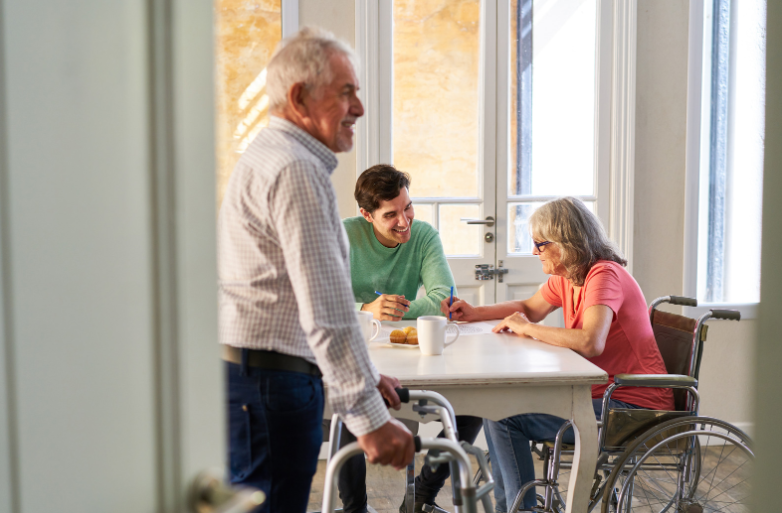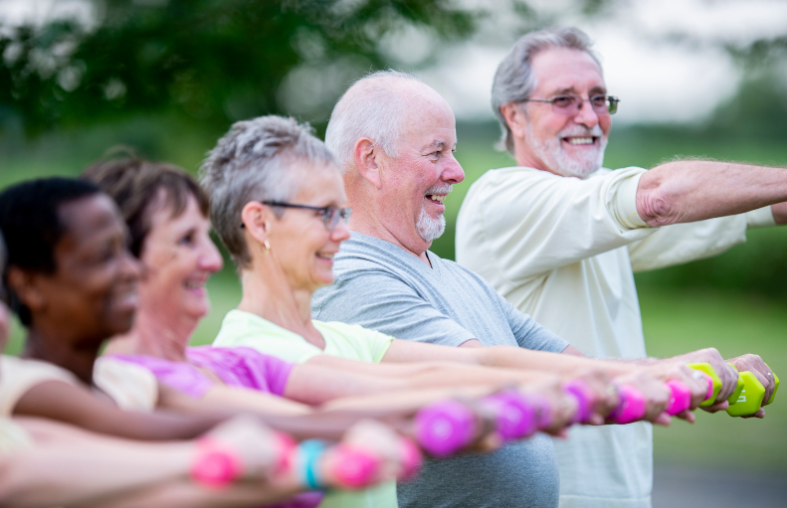How to improve the life of senior citizens and make them a great retirement planning?
As we journey through life, the golden years of our senior citizens deserve special attention and care.
The well-being of our elderly population depends on various factors, including healthcare, nutrition, exercise, socialization, mental stimulation, and much more.
In this comprehensive guide, we will explore the myriad ways in how to improve the life of the senior citizens which we can enhance the lives of senior citizens, ensuring their health, happiness, and overall quality of life.
Mental Health and the Elderly

Maintaining good mental health is paramount for the elderly. Loneliness, often a prevalent issue, can lead to a decline in mental well-being.
Seniors may experience feelings of isolation due to factors such as the loss of loved ones, retirement, or limited mobility.
To address this in our guide on how to improve the life of senior citizens, fostering companionship and socialization is crucial.
Promoting Companionship and Socialization
Encouraging seniors to engage in social activities can significantly enhance their mental health. Community involvement, volunteerism, and participation in senior centers provide avenues for interaction.
These activities not only combat loneliness but also provide a sense of purpose and belonging.
How to Maintain the Health of the Elderly

Senior citizens require specialized attention to ensure their health and well-being. Let’s delve into the methods that can promote and improve their mental and physical health.
Holistic Healthcare Approach
A holistic healthcare approach encompasses not only physical health but also mental and emotional well-being.
Regular health check-ups, preventive screenings, and proper medication management are essential.
Improving mental health is a big step and a key factor to enhance the life of the elderly.
Moreover, addressing underlying mental health issues and providing counseling services can significantly contribute to the overall health of the elderly.
Nutrition and Exercise
Proper nutrition and regular exercise play a vital role in the health of seniors.
A balanced diet rich in vitamins, minerals, and nutrients helps maintain bone health and prevents age-related illnesses.
Additionally, engaging in low-impact exercises, such as walking, swimming, and gentle yoga, can improve mobility and reduce the risk of chronic conditions.
According to research, seniors who have a sense of purpose are less prone to cognitive impairment, heart attacks, and strokes, and they live longer. Why? They are less prone to stress because they are more physically active, take better care of themselves, and are less susceptible to illness. Learning new things is good for your brain. Physical exercise delays and, in some cases, reverses physical disability.
Mental Stimulation
Mental stimulation is crucial for seniors to keep their minds sharp and active.
Activities like puzzles, brain games, and even learning new skills can promote cognitive function.
This not only reduces the risk of cognitive decline but also provides a source of joy and accomplishment.
Financial Planning Tips for Seniors Citizens

Planning for your financial future is important at any age, but especially so as you enter your retirement years.
With some prudent planning, seniors can ensure they have enough income to cover their needs and enjoy their golden years.
Here are some key financial planning tips for seniors:
Take Stock of Your Finances
First, review all your current income sources, assets, debts, and expenses.
This includes Social Security, pensions, 401(k)s, IRAs, annuities, investments, and more.
Make sure you understand your tax situation as well.
This helps you get a holistic view of your finances.
Calculate Retirement Income Needs To Improve the Life of Senior Citizens
Factor in routine living expenses like housing, food, transportation, and healthcare.
Budget for discretionary spending as well. Healthcare costs especially increase with age, so account for Medicare premiums, copays, and deductibles.
Maximize Your Social Security Benefits
The age you start taking Social Security significantly impacts your monthly income.
You can start as early as age 62, but waiting until your full retirement age (66-67) or age 70 provides higher benefits. Also consider spousal, survivorship, and disability benefits.
Have an Investment Plan for Retirement Assets
Create a withdrawal strategy for your retirement accounts to last your lifetime.
Consult a financial advisor to help allocate assets and plan distributions.
Focus on preserving principal while still generating income through stable investments.
Minimize Taxes on Your Retirement Income
Consider moving assets into accounts like a Roth IRA that provide tax-free income.
Look into which investments are best in a taxable account.
Take advantage of senior tax deductions and credits.
Protect Yourself with Insurance
Review health, home, auto, and long-term care insurance needs.
Medicare may not be enough. Annuities can also provide protected lifetime income.
Update beneficiaries on all policies.
The Most Important Tips for Caring for the Elderly in Their Home

Ensuring the well-being of senior citizens within their homes requires careful consideration of various factors.
Let’s explore some practical tips for effective elderly care at home that lead to improving their life and well-being.
Home Modifications for Accessibility
Making home modifications to enhance accessibility is key. Installing handrails, ramps, and grab bars can prevent falls and promote independent movement.
Moreover, creating a clutter-free and well-lit environment reduces the risk of accidents.
Mobility Aids and Assistive Devices
For seniors with mobility challenges, using mobility aids like walkers, canes, and wheelchairs can greatly improve their quality of life.
Providing the elderly with mobility options can make a big change to their quality of life
These devices enable them to move around safely and independently.
Financial and Retirement Planning
Senior citizens should have a well-defined financial and retirement plan in place.
This helps them manage their finances, cover medical expenses, and enjoy a comfortable retirement.
Seeking professional financial advice can provide invaluable guidance in this area.
Community Involvement and Transportation Services
Maintaining a sense of belonging within the community is vital for seniors.
Utilizing transportation services that cater to their needs ensures they can participate in social activities, medical appointments, and other events.
Nutritional Guide for Senior Citizens
A healthy diet is an important step in our guide on how to improve the life of senior citizens.
As individuals age, their nutritional needs may change.
A balanced and nutrient-rich diet is essential to maintain good health and well-being in senior citizens. Here’s a comprehensive nutritional guide to help seniors make informed dietary choices:
- Get adequate protein – Protein is important for preserving muscle mass and strength as we age. Good sources of protein include eggs, lean meats, dairy, beans, nuts, and soy. Older adults should aim for 0.5-0.7g of protein per pound of body weight per day.
- Eat plenty of fruits and vegetables – Fruits and veggies provide vitamins, minerals, fiber and antioxidants. Aim for 5-9 servings per day of a variety. Go for a rainbow of colors.
- Choose whole grains – Choose 100% whole grain breads, cereals, pasta and brown rice over refined grains. Whole grains provide more fiber, vitamins and minerals.
- Consume calcium and vitamin D – Calcium and vitamin D help maintain bone health. Get 3 servings of dairy daily. If you are lactose intolerant, try lactose-free milk, yogurt and cheese or calcium-fortified plant milks and juices. Take a vitamin D supplement.
- Drink adequate fluids – Dehydration is a risk for older adults. Drink at least 6-8 glasses of fluids per day and more during hot weather or exercise. Water and unsweetened beverages are best.
- Reduce salt and sugar – Limit processed foods and condiments high in sodium and added sugars. Use herbs and spices to flavor foods instead.
- Eat heart-healthy fats – Choose olive oil, nuts, avocados, fatty fish. Limit saturated and trans fats.
- Control portions – Maintaining a healthy weight helps manage chronic conditions. Be mindful of portions and read nutrition labels.
- Stay active – Exercise also helps preserve muscle and bone health. Aim for 150 minutes per week of moderate activity. Also include strength training 2-3 times per week.
- Eat nutrient-dense foods and stay hydrated, active and engaged socially for the best nutritional health in your senior years! Consult a dietitian if you have specialized dietary needs.
Conclusion
In conclusion of our guide on how to improve the life of senior citizens, improving the lives of senior citizens requires a holistic approach that addresses their physical, mental, and emotional well-being.
Through healthcare, nutrition, exercise, socialization, and accessible living environments, we can ensure that our elderly population enjoys a fulfilling and joyful life.
Keep focusing on their needs and promoting their independence, we can truly make a positive impact on their quality of life.
FAQs about How to Improve the Life of Senior Citizens
Why Do the Elderly Feel Lonely?
Loneliness among the elderly can stem from factors such as loss of companions, retirement, and limited social interactions. Engaging them in social activities and fostering connections can alleviate this issue.
What Are the Most Important Needs of the Elderly?
The primary needs of the elderly include proper healthcare, companionship, mental stimulation, accessible living environments, and financial security for retirement.
What Are the Problems Experienced by the Elderly?
Elderly individuals often face challenges related to physical health, mental well-being, accessibility, financial stability, and social isolation. Addressing these issues through proper care and support is crucial.

